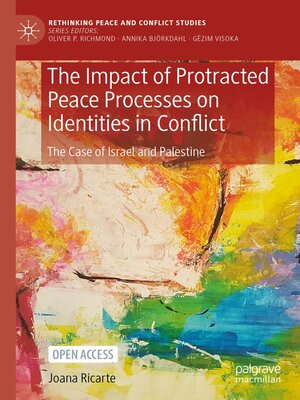The Impact of Protracted Peace Processes on Identities in Conflict
ebook ∣ The Case of Israel and Palestine · Rethinking Peace and Conflict Studies
By Joana Ricarte

Sign up to save your library
With an OverDrive account, you can save your favorite libraries for at-a-glance information about availability. Find out more about OverDrive accounts.
Find this title in Libby, the library reading app by OverDrive.



Search for a digital library with this title
Title found at these libraries:
| Library Name | Distance |
|---|---|
| Loading... |
This open access book discusses the impact of protracted peace processes on identities in conflict. It is concerned with how lingering peace processes affect, in the long-term, patterns of othering in protracted conflicts, and how this relates with enduring violence. Taking Israel and Palestine as a case study, the book traces different representations of success and failure of the protracted peace process, as well as its associated policies, narratives, norms and practices, to analyze its impact on identity and its contribution to the maintenance and/or transformation of the cultural component of violence. On the one hand, drawing from an interdisciplinary approach comprising International Relations (IR), History and Social Psychology, this book proposes an analytical framework for assessing the specificities of the construction of identities in protracted conflicts. It identifies dehumanization and practices of reconciliation in ongoing conflicts – what is called peace-less reconciliation – as the main elements influencing processes of othering and violence in this kind of conflicts. On the other hand, the book offers an empirical historical analysis on how the protracted peace process has impacted identity building and representations made of the 'other' in the case of the Israeli-Palestinian conflict since the end of the 19th century to the present day.







